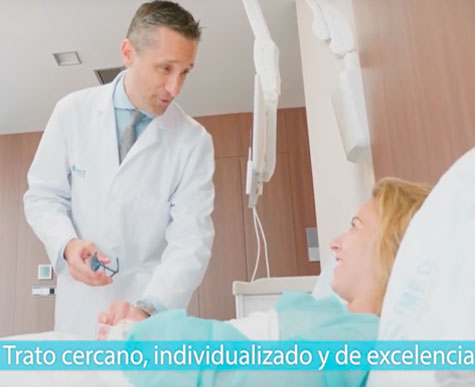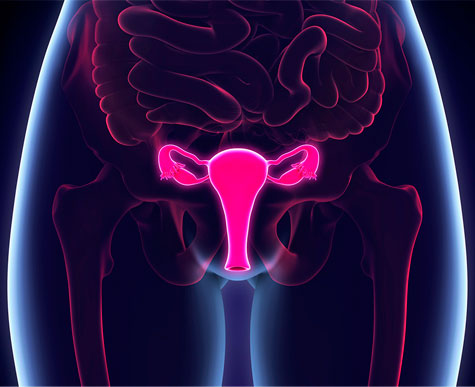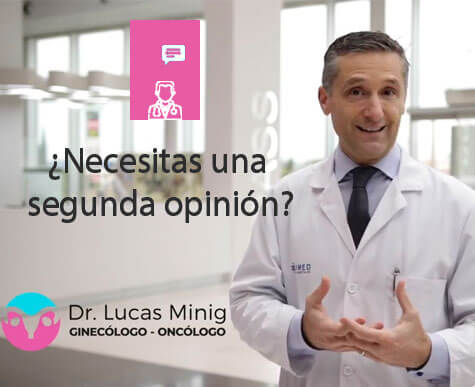infertility in the couple
The terms sterility and infertility are very similar, but their meaning is very different.
Sterility is the inability to get pregnant. Instead, Infertility is the inability to complete a pregnancy in a live newborn, being couples who, for example, may have 1 or more consecutive abortions.
Both sterility and infertility can be primary or secondary, this definition being based on whether or not they have previously achieved a pregnancy.
The cause of them can be female, male or mixed. In some cases, there is what is called marital sterility of unknown cause, when the causes cannot be identified, so some couples cannot conceive. It should be noted that the human species has a low pregnancy rate, which is around 13 to 18%.
What factors can influence sterility/infertility?
The causes of infertility can be female, male or mixed. The female ones account for around 30% of the cases, the male ones another 30%, the mixed ones 20% and those of unknown cause another 20%.
Within the feminine factors we can find:
- Maternal age: It is one of the main causes today since women tend to postpone motherhood. Female fertility tends to decrease after 35 years of age, with the possibility of pregnancy after 40 years of 10%.
- Hormonal Disorders: There are several hormonal disorders that can alter the female sexual cycle, such as hyper or hypothyroidism, hyperprolactinemia and disorders of the female sexual axis (anovulation, polycystic ovary syndrome, etc.)
- Anatomical Alterations: Malformations of the uterus, altered patency of the tubes due to different causes (pelvic infections, peritonitis, etc.)
- Endometriosis
- Uterine myomatosis and adenomyosis
- Genetic alterations
- Toxic consumption
- Obesity
- Chronic diseases: cancer, depression, thrombophilia, etc.
Male factors include:
- Alterations in the quality/quantity of the spermatozoa: they are due to causes inherent to the production of hormones, genetic alterations, varicocele, testicular infections, testicular cancer, renal or hepatic insufficiency, lack of descent of the testicles, excessive heat, trauma.
- Obstruction of the seminal duct: they can be of congenital or acquired causes such as vasectomy.
- Alterations in erection and ejaculation.
- Consumption of toxic and radiation.
What kind of treatments are there?
There are several types of treatments, depending on the results of the studies of each couple. There are treatments for couples of women, single women and heterosexual couples.
- Artificial insemination: with spouse or donor sperm
- IVF
- Sperm microinjection
- Egg donation
- ROPA technique: receiving oocytes from a partner in the case of female partners
- Embryo adoption or embryo reception
If I want to postpone my maternity, can I do it?
If a woman is not sure if she wants to be a mother in the short term, it is advisable to vitrify eggs. Vitrification is a technique by which the recovered eggs are frozen and preserved for as long as necessary until you decide to become a mother. Vitrification is recommended for women under 35 years of age, although the age can be extended to 38 years in a few cases.
Is it advisable to vitrify eggs if I have to undergo pelvic surgery or undergo chemotherapy treatment?
It is highly advisable to preserve fertility since there are numerous treatments, such as ovarian surgery, chemotherapy or radiotherapy, which have a negative effect on the ovarian reserve and, therefore, on future fertility rates. If this is your case, check it out. You can refer to your gynecologist or a fertility center for advice on your particular case.
Frequently Asked Questions about Infertility in the couple
What does the infertility/sterility study consist of?
In cases of difficulty conceiving, both members of the couple should be studied without exception. In the case of women, it is stipulated to carry out a blood test that includes, among other things, a hormonal study, a transvaginal ultrasound to count the follicles and uterine morphology, and a hysterosalpingography to check the patency of the tubes. In the case of men, a seminogram and a blood test will be performed. It should be noted that, depending on the problem that arises, other particular studies may be requested for each couple, such as, for example, karyotype, thrombophilia study, etc.
When do I have to do a fertility consultation?
It is estimated that 85% of couples who have a good frequency of sexual intercourse (3 times/week) become pregnant during the first year of searching. However, after this time, it is advisable to make a consultation. If you have to be strict, in couples in which the woman is under 35 years old, you can wait a year before making the first consultation. In couples in which the woman is over 35 years old, it is advisable to advance that consultation to 6 months of search without pregnancy. This is due to the fact that the fertility of women decreases significantly after the age of 35, since the ovules decrease in quantity and quality. In any case, this must be totally flexible and, in many cases, the mere fact of consulting helps to plan and clarify doubts regarding the reproduction.
Testimonials of patients of Sterility in the couple
Doctor Lucas Minig Gynecologist Specialist in Sterility in the couple in Valencia, Spain
WE WORK FOR YOUR HEALTH

SPECIALIZED TREATMENTS

CONTROL Y DIAGNOSTICO

MAXIMUM TECHNOLOGY

Contact Us
Leave us your data and consultation to offer you personalized medical advice
International Consultation
If you want remote medical care, you can consult
through the following links:
International Appointment
Online Consultation
Whatsapp: + 34 679 112 179
Request an appointment with your Trusted Gynecologist in Spain
[yasr_overall_rating]






